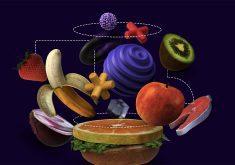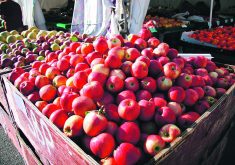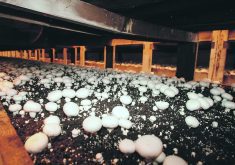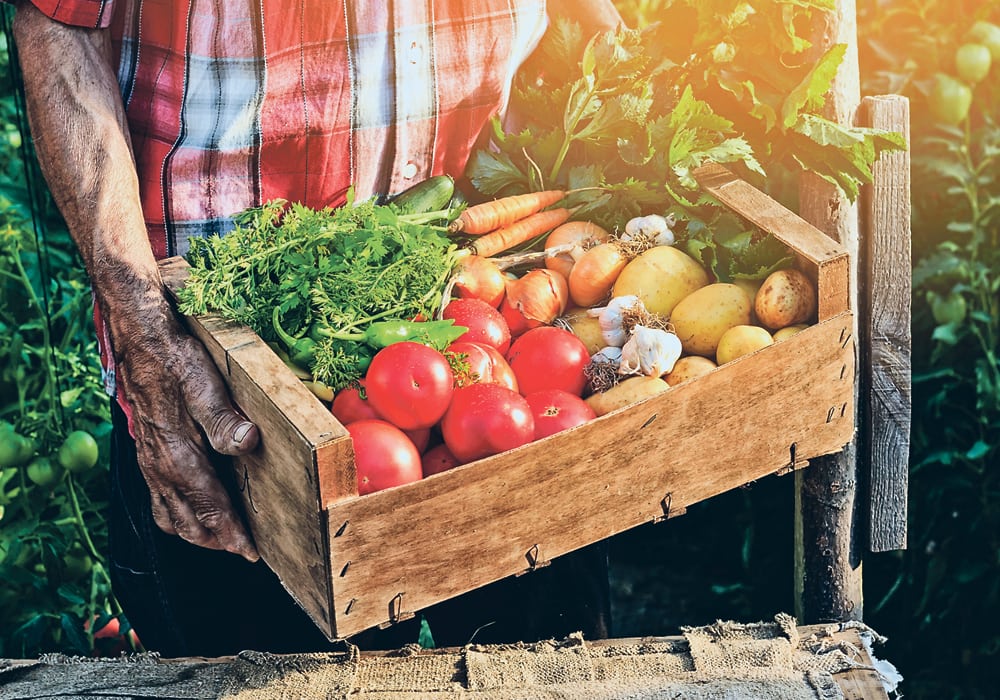Twelve organizations have been named finalists in the federal government’s Food Waste Reduction Challenge.
The 12 commercial and non-commercial businesses were selected from 343 applicants across Canada and other countries in the challenge’s business model stream. The focus is to develop solutions that prevent or divert food waste anywhere in the food system. There is also a novel technologies stream, for which semi-finalists were announced earlier this year.
The finalists are diverse.
They include Top Grade Ag from Calgary, which uses a web-based app and bin instrumentation to provide real-time drying and monitoring of tough grain.
Read Also

Using artificial intelligence in agriculture starts with the right data
Good data is critical as the agriculture sector increasingly adopts new AI technology to drive efficiency, sustainability and trust across all levels of the value chain.
Glenn Wilde said the technology allows farmers to convert grain storage to drying facilities at a reasonable cost. He said farmers, on average, lose $30 per acre due to reduced quality and field losses from wet grain.
“By providing farmers access to low-cost on-farm grain drying it will enable farms of any size to be able to harvest high-moisture grains and lock in premium quality and eliminate these losses,” he said during a news conference with federal minister Marie-Claude Bibeau and the other finalists.
“The ultimate prize, with full adoption of our technology, would result in 1.7 million tonnes of eliminated food loss on our Canadian farms.”
In Hamilton, Ont., Abokichi is using century-old Japanese practices to upcycle okara, the pulp remaining from tofu and soymilk production, into food products.
Chief executive officer Jess Mantell said about 7,000 tonnes of okara are wasted each year across Canada even though it’s a staple in Asian cuisine. She said the company adapts its new products to western palates. Okara otherwise becomes animal feed, at best, and landfill, at worst, she said.
Montreal company Blanc de gris is developing a mushroom-growing business that uses spent brewers’ grain as a feedstock, while Still Good, also from Montreal, uses spent brewers’ grain to make nutrient-rich flours that are high in fibre and protein.
Circular Innovation Council, based in Orangeville, Ont., is working to help the largest generator of food waste, the Canadian institutional, commercial and industrial sector, to recover edible food and divert food waste that would be trashed.
Food Cycle Science Corp. in Ottawa partners with about 40 small, rural, northern and Indigenous communities in six provinces and territories to reduce residential food waste with the FoodCycler.
CEO Alex Hayman said the countertop appliance converts food waste into a nutrient-rich soil additive in hours. Large green bins commonly seen in cities aren’t economically viable in rural and remote areas, he said.
Montreal’s LOOP Mission turns fruit and vegetable waste into juices, purees and powder that food manufacturers can use as ingredients. In Dartmouth, Nova Scotia, Outcast Foods gets fresh waste and surplus produce from farmers and grocers and converts that into whole plant powders and dehydrated products.
Co-founder and executive director Brian Lowe said the company uses a proprietary process to clean and dehydrate the produce before grinding it.
“We then can use these powders in our supplement products such as our protein powders that we sell through our retail partners and direct to consumers as well,” he said.
Savormetrics from Mississauga uses artificial intelligence-driven sensors to predict defects, contaminants and shelf life of produce and reduce waste.
“Right now, people have to go by what the produce looks like on the surface,” said CEO Harjeet Bajaj. “We do know, however, that the shiny cover doesn’t really indicate the quality level of the produce.”
At The Station Food Company in Newport Station, N.S., produce that would be deemed waste is purchased and transformed into products such as mashed potatoes and sold to institutional buyers.
TriCycle from Montreal is breeding edible insects by feeding them bakery residue, brewers’ spent grains and yeast, as well as leftover fruit and vegetable pulp. The insect waste then is transformed into organic fertilizer.
Toronto’s Vivid Machines Inc. is helping fruit growers with a real-time sensor and computer vision system to see every plant in detail through the growing season. This will better manage crop loads and prevent quality issues.
The finalists were selected on the basis of potential volume of waste reduction, the level of innovation and scalability, as well as the environmental, social and economic benefits their proposals would offer.
Each received $400,000 to move on to the next stage. They now have a year to scale up their ideas. There are two grand prizes of up to $1.5 million.
















